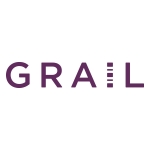Clinical Surveillance Supports Galleri’s Ability to Detect a Cancer Signal and Predict Cancer Signal Origin Across Multiple Cancers
Results are Consistent with GRAIL’s Large-Scale Clinical Studies, Including PATHFINDER, and Support Population-Level Multi-Cancer Early Detection Screening
MENLO PARK, Calif.–(BUSINESS WIRE)–GRAIL, LLC, a healthcare company whose mission is to detect cancer early when it can be cured, today announced data evaluating the Galleri® multi-cancer early detection (MCED) test’s ability to detect a cancer signal and predict the cancer signal origin (CSO) in asymptomatic individuals in the real-world setting. The initial findings support that real-world performance of Galleri is consistent with previous large-scale clinical studies, including the cancer signal detection (CSD) rate and accuracy of the CSO prediction to guide diagnostic workup. Positive Galleri results with a CSO prediction were associated with a diagnosis of invasive cancer across multiple cancer types, including stage I and II cancers. The findings were presented during a poster discussion session at the 2023 American Society of Clinical Oncology (ASCO) Annual Meeting.
“Multi-cancer early detection tests like Galleri have shown that they can enable us to do something completely different—move away from screening an individual for an individual cancer and instead look for whatever cancer they may have with a single blood test,” said Candace Westgate, DO, Chief of Staff and Director of the AHEAD population-based cancer prevention and early detection program at Adventist Health, St. Helena, Calif. “Approximately 70% of cancer deaths are from cancer types that lack standard screening tools. These early data support the clinical benefit of the Galleri MCED test in real-world settings and support its adoption to complement recommended cancer screenings.”
Systematic collection of outcomes for cases with a CSD result was completed for a small subset of the initial 53,744 MCED commercial tests ordered and processed in the United States. As part of the clinical surveillance program, GRAIL follows CSD results by contacting ordering providers 3 months or more after the Galleri test result to collect cancer outcomes.
The CSD rate for Galleri was 0.95%, which was comparable to modeled MCED test performance rates and cancer incidence from the Surveillance, Epidemiology, and End Results (SEER) Program.
Cancers diagnosed in 72 individuals included prostate (n=11), lymphoma (n=10), breast (n=5), colon/rectum (n=5), lymphoid leukemia (n=5), head and neck (n=4), lung (n=4), pancreas (n=4), plasma cell neoplasm (n=4), ovary (n=3), anus (n=2), esophagus (n=2), liver/bile-duct (n=2), kidney (n=1), sarcoma (n=1), uterus (n=1), and cancer type unavailable (n=8). In cases with reported stage (n=38), 32% (12/38) were detected at stages I/II and 61% (23/38) were detected at stages I/II/III.
One of the patients for whom Galleri detected a lethal cancer early is Roger Royse, who took the test at age 62. “I took the test in order to rule out any silent killers in my body even though I had no symptoms or risk factors for cancer other than my age. Surprisingly, the test detected a signal for pancreatic cancer. Based on the test result, I was scanned and diagnosed with stage 2B pancreatic cancer, which was early enough to be treated with chemotherapy and surgery. Had I not caught the cancer when I did, I would never have known that I had cancer until it was too late to surgically remove,” he said.
CSO prediction accuracy was 91%, which was higher than that observed in PATHFINDER (84%) and comparable to that in the clinical validation Circulating Cell-Free Genome Atlas study (89%). The top CSO predictions were consistent to those observed in the PATHFINDER study.
“Results of this analysis underscore our commitment to the rigorous study and validation of our multi-cancer early detection technology in both clinical studies and clinical surveillance,” said Jeffrey Venstrom, MD, Chief Medical Officer at GRAIL. “We are encouraged by these data demonstrating that Galleri performance in the real world supports what we have observed in our previous large-scale clinical studies. We continue to see an average cancer signal detection rate of 1%, which as expected increases with age. Aligned with what we’ve seen previously, Galleri improves the opportunity for early detection by screening for multiple cancers—most of which lack screening tests—and can predict the origin of the cancer signal with high accuracy to direct diagnostic evaluation and resolution.”
Results were returned for >98% of Galleri tests ordered, with a mean age of 58.9 for males and 59.2 for females, and a mean turnaround time of 6.7 business days.
Eighty individuals had no invasive cancer diagnosis at the time of the analysis, and additional follow up is ongoing. An additional 358 individuals remain under review. GRAIL is pursuing follow-up cancer status on all individuals with CSD, as positive predictive value cannot be computed until cancer status has been established for this cohort. Similarly, sensitivity cannot be computed based on this initial subset of patients.
About GRAIL
GRAIL is a healthcare company whose mission is to detect cancer early, when it can be cured. GRAIL is focused on alleviating the global burden of cancer by using the power of next-generation sequencing, population-scale clinical studies, and state-of-the-art machine learning, software, and automation to detect and identify multiple deadly cancer types in earlier stages. GRAIL’s targeted methylation-based platform can support the continuum of care for screening and precision oncology, including multi-cancer early detection in symptomatic patients, risk stratification, minimal residual disease detection, biomarker subtyping, treatment and recurrence monitoring. GRAIL is headquartered in Menlo Park, CA with locations in Washington, D.C., North Carolina, and the United Kingdom. GRAIL, LLC, is a subsidiary of Illumina, Inc. (NASDAQ:ILMN) currently held separate from Illumina Inc. under the terms of the Interim Measures Order of the European Commission.
For more information, visit grail.com.
About Galleri®
Galleri is the first-of-its-kind multi-cancer early detection (MCED) test that has demonstrated the ability to detect a shared cancer signal across more than 50 types of cancer through a routine blood draw. The Galleri test can improve the opportunity for asymptomatic early detection by screening for multiple cancers, most of which lack recommended screening tests. Galleri has demonstrated a low false positive rate and high positive predictive value (the proportion of people with a positive screening result who are diagnosed with cancer) in asymptomatic people at an elevated risk for cancer.
The Galleri test uses next-generation sequencing and machine-learning algorithms to isolate cell-free DNA and analyze methylation patterns to detect if a cancer signal is present. If a cancer signal is detected, the Galleri test predicts the cancer signal origin, or the tissue or organ where the cancer signal originated, to help guide diagnostic evaluation.
The Galleri test requires a prescription from a licensed health care provider and should be used in addition to recommended cancer screenings such as mammography, colonoscopy, prostate-specific antigen (PSA) test, or cervical cancer screening. It is intended for use in people with an elevated risk of cancer, such as those aged 50 or older.
For more information, visit galleri.com.
Important Galleri Safety Information
The Galleri test is recommended for use in adults with an elevated risk for cancer, such as those aged 50 or older. The Galleri test does not detect all cancers and should be used in addition to routine cancer screening tests recommended by a healthcare provider. Galleri is intended to detect cancer signals and predict where in the body the cancer signal is located. Use of Galleri is not recommended in individuals who are pregnant, 21 years old or younger, or undergoing active cancer treatment.
Results should be interpreted by a healthcare provider in the context of medical history, clinical signs and symptoms. A test result of “Cancer Signal Not Detected” does not rule out cancer. A test result of “Cancer Signal Detected” requires confirmatory diagnostic evaluation by medically established procedures (e.g., imaging) to confirm cancer.
If cancer is not confirmed with further testing, it could mean that cancer is not present or testing was insufficient to detect cancer, including due to the cancer being located in a different part of the body. False-positive (a cancer signal detected when cancer is not present) and false-negative (a cancer signal not detected when cancer is present) test results do occur. Rx only.
Laboratory/Test Information
GRAIL’s clinical laboratory is certified under the Clinical Laboratory Improvement Amendments of 1988 (CLIA) and accredited by the College of American Pathologists. The Galleri test was developed, and its performance characteristics were determined by GRAIL. The Galleri test has not been cleared or approved by the U.S. Food and Drug Administration. GRAIL’s clinical laboratory is regulated under CLIA to perform high-complexity testing. The Galleri test is intended for clinical purposes.
Contacts
For GRAIL
Corporate Communications
Kristen Davis
Trish Rowland
[email protected]




